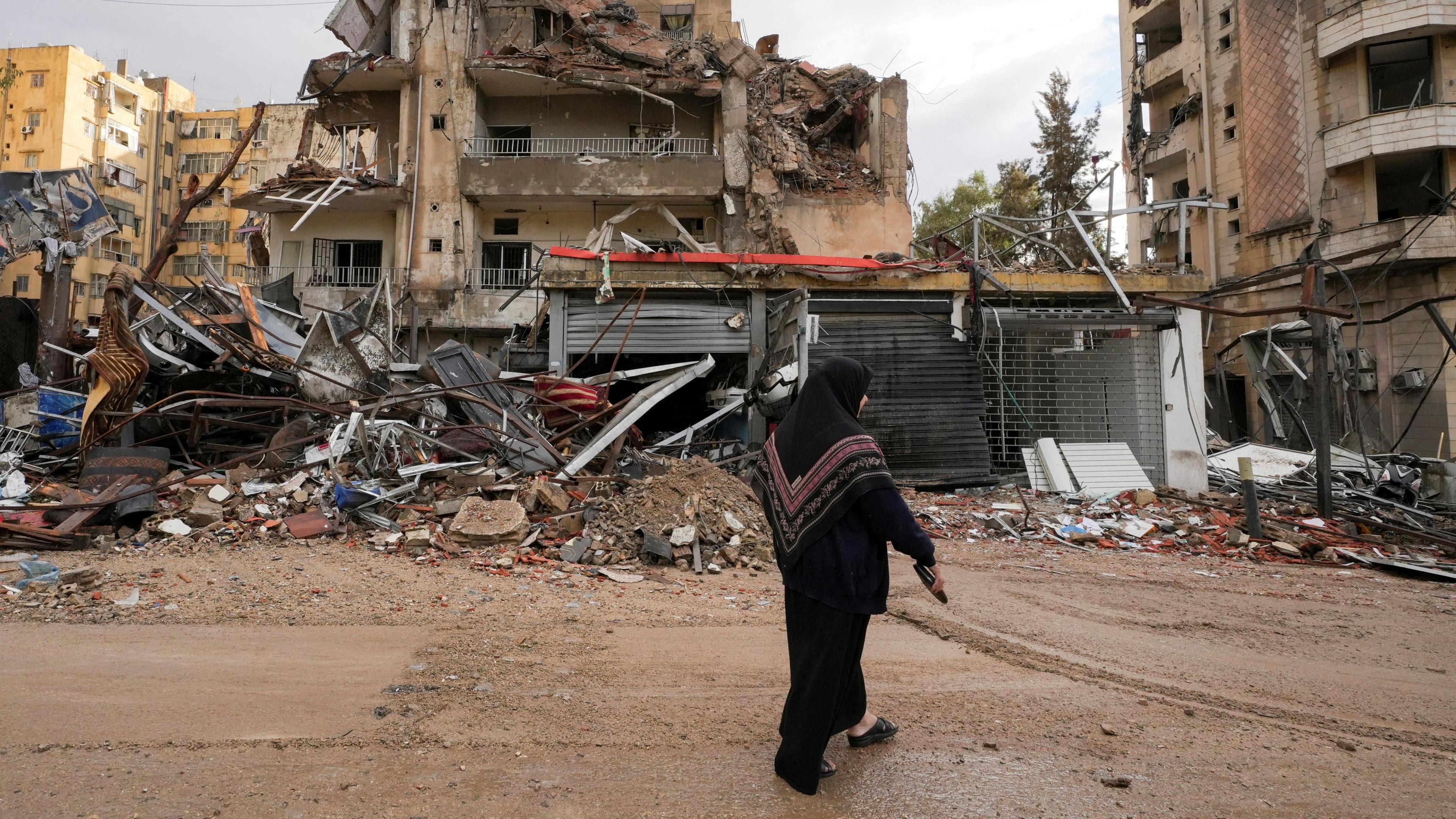Lebanon ceasefire: Fighting pauses between Israel and Hezbollah

Israel launched an air campaign and ground invasion against Hezbollah in September
- Published
A ceasefire between Israel and Hezbollah has begun after more than a year of fighting.
US President Joe Biden has said the leaders of Israel and Hezbollah, who are an armed political group based in Lebanon, have agreed to pause their conflict for the next 60 days.
The deal was announced on Tuesday evening by Israel, France and the US, with President Biden saying it aimed to bring a "permanent" stop to the fighting.
The fighting has led to thousands of people having to leave their homes in Lebanon and Israel over the last year.
- Published30 September
- Published3 October
- Published29 August 2022
Lebanon boarders Syria and Israel, and sits on the coast of the Mediterranean Sea.
The agreement began in the early hours of Wednesday morning.
Israel and Hezbollah have agreed to pull their fighters back into their own territories, allowing people on both sides to return to their homes.
Some people have already started returning to the area, but Israeli military (IDF) has warned people not to do so yet.
Hezbollah has fired thousands of rockets, missiles and drones into Israel
Hezbollah is a political party and armed group in Lebanon and has been involved in periods of fighting with Israel for many decades.
Although it doesn’t run Lebanon, it is the most powerful armed force in the country, even though it is not part of the armed forces of Lebanon.
The UK, US and Israel, have made it a "proscribed terrorist organisation", which means that it has been decided by governments that it is a terrorist group.
As part of the deal, around 5,000 troops from the Lebanese army will replace the Hezbollah fighters in border areas and make sure the group's weapons, shelters and vehicles are removed.
Other nations including the United States and France will monitor the ceasefire to check neither side breaks their part of the deal.
What have world leaders said about the ceasefire?
US President Joe Biden says the ceasefire is designed to be permanent
Lebanon's Prime Minister Najib Mikati welcomed the ceasefire deal, calling it a "fundamental step towards restoring calm and stability" in the country and allowing citizens to return home.
But he also demanded Israel "fully comply" with the deal.
Israel's Prime Minister Benjamin Netanyahu said Israel will not hesitate to strike if Hezbollah breaks any part of the agreed deal.
Joe Biden supported that view, telling reporters: "If Hezbollah or anyone else breaks the deal and poses a direct threat to Israel, then Israel retains the right to self-defence consistent with international law."
Iran, who provide funding for Hezbollah, has welcomed what it calls the end of Israel's "aggression" in Lebanon.
Although it's hoped this ceasefire will bring an end to fighting in Lebanon, it may not directly affect the war in Gaza.
US officials have expressed some hope that this ceasefire could lead to a breakthrough in talks about Gaza and President Biden said his team were working with Turkey, Egypt and Qatar to "make another push" on a deal.
